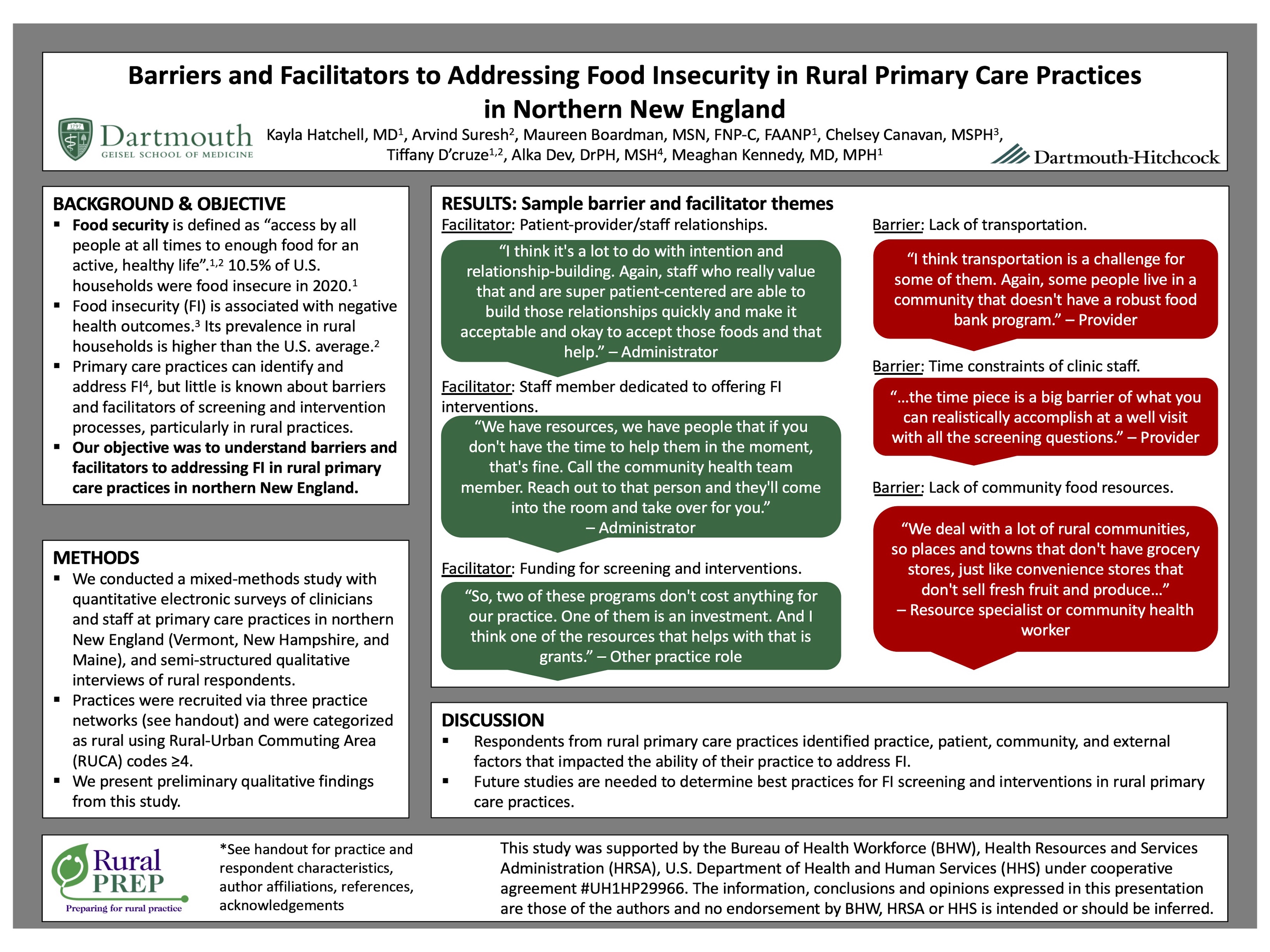PRP013: Barriers and Facilitators to Addressing Food Insecurity in Rural Primary Care Practices in Northern New England
Kayla Hatchell, MD; Arvind Suresh, BA; Maureen Boardman, APRN, ARNP; Tiffany D'cruze, BA; Chelsey Canavan, MSPH; Meaghan Kennedy, MD, MPH; Alka Dev, DrPH, MHS
Abstract
Context: Food insecurity (FI) is associated with negative health outcomes throughout the lifespan and rural households experience higher rates of FI than the U.S. overall. Primary care practices have the opportunity to address food insecurity by screening for FI, providing onsite food resources, and referring patients to community supports. There is limited information on barriers and facilitators to addressing FI in primary care practices, especially in rural areas. Objective: Understand barriers and facilitators to screening for and intervening on FI in rural primary care practices in northern New England. Study Design: Mixed-methods study consisting of a web-based survey and in-depth semi-structured qualitative interviews. We will present findings from the qualitative component of this ongoing study. Setting: Rural primary care practices in northern New England, USA. Population studied: Staff and clinicians from primary care practices were recruited through 3 regional practice networks in northern New England. We invited one representative per practice to participate. Rural practices (Rural-Urban Commuting Area codes ≥4) were included in this analysis. Outcome Measures: Interview questions covered the following domains: 1) factors affecting FI among patients; 2) practice FI screening procedures; and 3) practice FI interventions. The primary outcome is themes related to barriers and facilitators to addressing FI. Anticipated results: Staff and clinicians from 13 rural primary care practices participated in interviews. Participant roles included providers (39%), resource specialists/community health workers (23%), administrators (23%), and other practice roles (15%). Thematic analysis of interview transcripts is ongoing. Themes that reveal barriers and facilitators to addressing FI will be reported. Patient, practice, community, and external factors will be described.

Jack Westfall
jwestfall@aafp.org 11/21/2021Thanks for your terrific work on this research. Hope you can connect with us at the Robert Graham Center https://www.graham-center.org/rgc/home.html